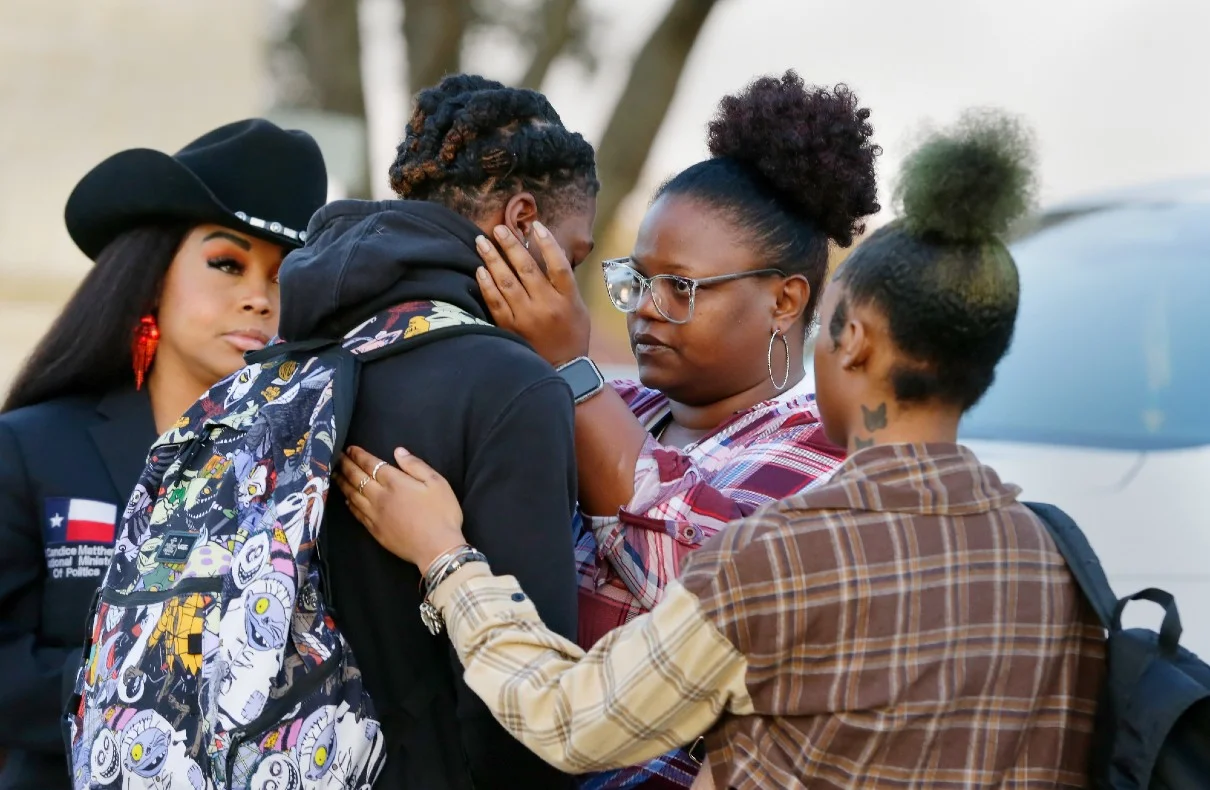
In the state of Texas, the issue of school policies and their impact on students’ hairstyles has been a subject of controversy and legal battles. Recently, a judge ruled on a case involving a Texas high school student, Darryl George, who was suspended for wearing his hair in long locs. The judge’s decision has sparked discussions about the interpretation and application of the CROWN Act, a law designed to prevent race-based hair discrimination.
Darryl George, an 18-year-old junior at Barbers Hill High School, found himself at the center of a heated debate when he was suspended for wearing his hair in long locs. The school cited their dress code policy, which prohibits male students from having hair that extends beyond their eyebrows, earlobes, or collars. George and his family argued that this policy violated the newly implemented Texas CROWN Act, which aims to eliminate race-based hair discrimination in schools and workplaces.
The dispute between George and the Barbers Hill Independent School District culminated in a bench trial, where the judge had to determine whether the school’s hair length policies were in violation of the CROWN Act. Lawyers representing both sides presented their arguments, debating the legislative intent behind the law and the definition of protective hairstyles. The district maintained that their policy did not discriminate against students based on race or hairstyle, while George’s lawyers argued that protective styles often require longer hair.
Arizona GOP Chair Resigns Amidst Pressure from Kari Lake Team
After careful consideration of the arguments presented, Judge Chap Cain III ruled in favor of the school district. He concluded that the district’s dress code policy did not violate the CROWN Act. However, the judge also encouraged lawmakers to clarify the law by including specific language about hair length, suggesting that the current version of the CROWN Act was open to interpretation.
The judge’s ruling in the Barbers Hill case raises questions about the interpretation of the CROWN Act. While the law explicitly prohibits race-based hair discrimination, it does not specifically address hair length. This ambiguity has allowed schools like Barbers Hill to argue that their policies do not violate the law. Critics argue that the CROWN Act should have included explicit language about hair length to avoid such loopholes.
One of the key arguments put forth by George’s legal team was the necessity of hair length for protective styles. Protective styles, such as locs, braids, and twists, often require longer hair to achieve the desired look. By limiting hair length, schools like Barbers Hill effectively prevent students from wearing these culturally significant hairstyles. This argument highlights the importance of considering the practical aspects of hairstyle regulations.
Another aspect of the case revolves around equal protection under the law. George’s legal team argued that the district’s grooming policy, which only applies to male students, violates the equal protection clause of the Constitution. They contended that if the CROWN Act designates a specific “protected class” based on a particular hairstyle associated with race, the burden should be on the school district to prove that their grooming policy serves a compelling state interest.
The ruling in the Barbers Hill case has significant implications for students and schools in Texas. It sets a precedent that allows schools to enforce hair length policies without violating the CROWN Act. This decision may embolden other schools to maintain or implement similar policies, potentially leading to further instances of hair discrimination. Students, particularly those from marginalized communities, may continue to face challenges in expressing their cultural identity through their hairstyles.
Michael Jackson Biopic: Nephew Recreates the King of Pop’s Iconic Dangerous Tour Look
In response to the Barbers Hill ruling, lawmakers and advocates are calling for further legislative action to clarify the CROWN Act. They argue that specific language addressing hair length should be included to prevent schools from exploiting loopholes. Efforts are underway to amend the law and ensure that it provides comprehensive protection against hair discrimination in all its forms.
In addition to potential legislative changes, the George family has filed a federal civil rights lawsuit against the Barbers Hill Independent School District, as well as Texas Governor Greg Abbott and Attorney General Ken Paxton. The lawsuit alleges a failure to enforce the CROWN Act and protect students’ rights. The outcome of this lawsuit may have far-reaching implications for the interpretation and enforcement of the CROWN Act in Texas.
